Dean Dong Qiang of Yenching Academy was invited to give a lecture at the National Guimet Museum of Asia Arts (Musée Guimet) in Paris on January 25. After the lecture, Prof Dong and Jean-Marie Gustave Le Clézio, winner of the 2008 Nobel Prize in Literature, participated in a discussion and signing session for their co-authored book Le flot de la poésie continuera de couler (2020). The Chinese translation of the book was published as Tang Shi Zhi Lu by People’s Literature Publishing House in 2021.
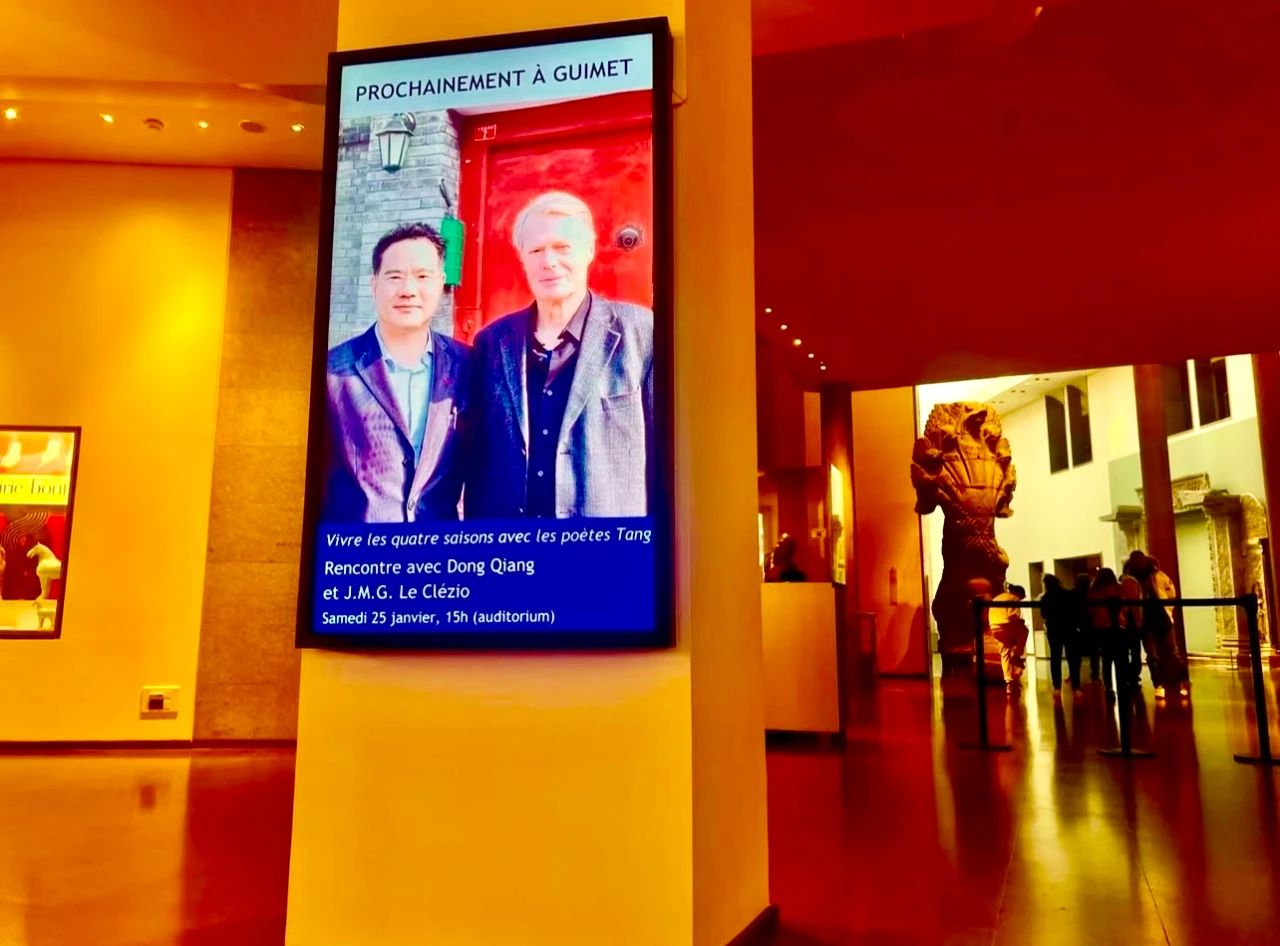
Prof. Dong expressed gratitude for his over three-decade-long friendship with Le Clézio, to the audience, and for the opportunity to give a lecture at the Guimet Museum, one of the most important museums of Asian arts, which is currently hosting the Tang China exhibition. The professor's last lecture in France was over ten years ago, and he was delighted to deliver this one, marking his first public lecture at a major cultural institution in France.
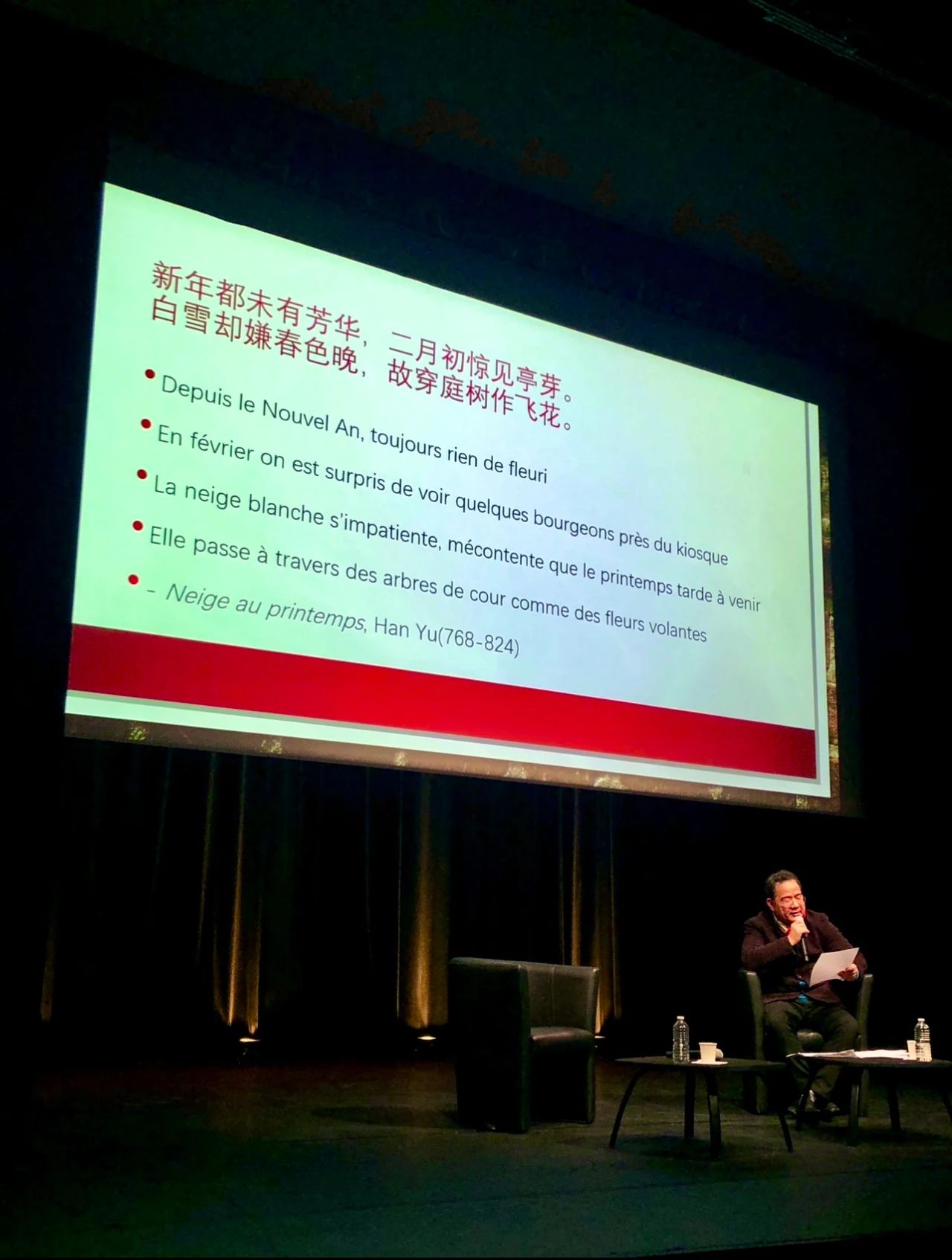
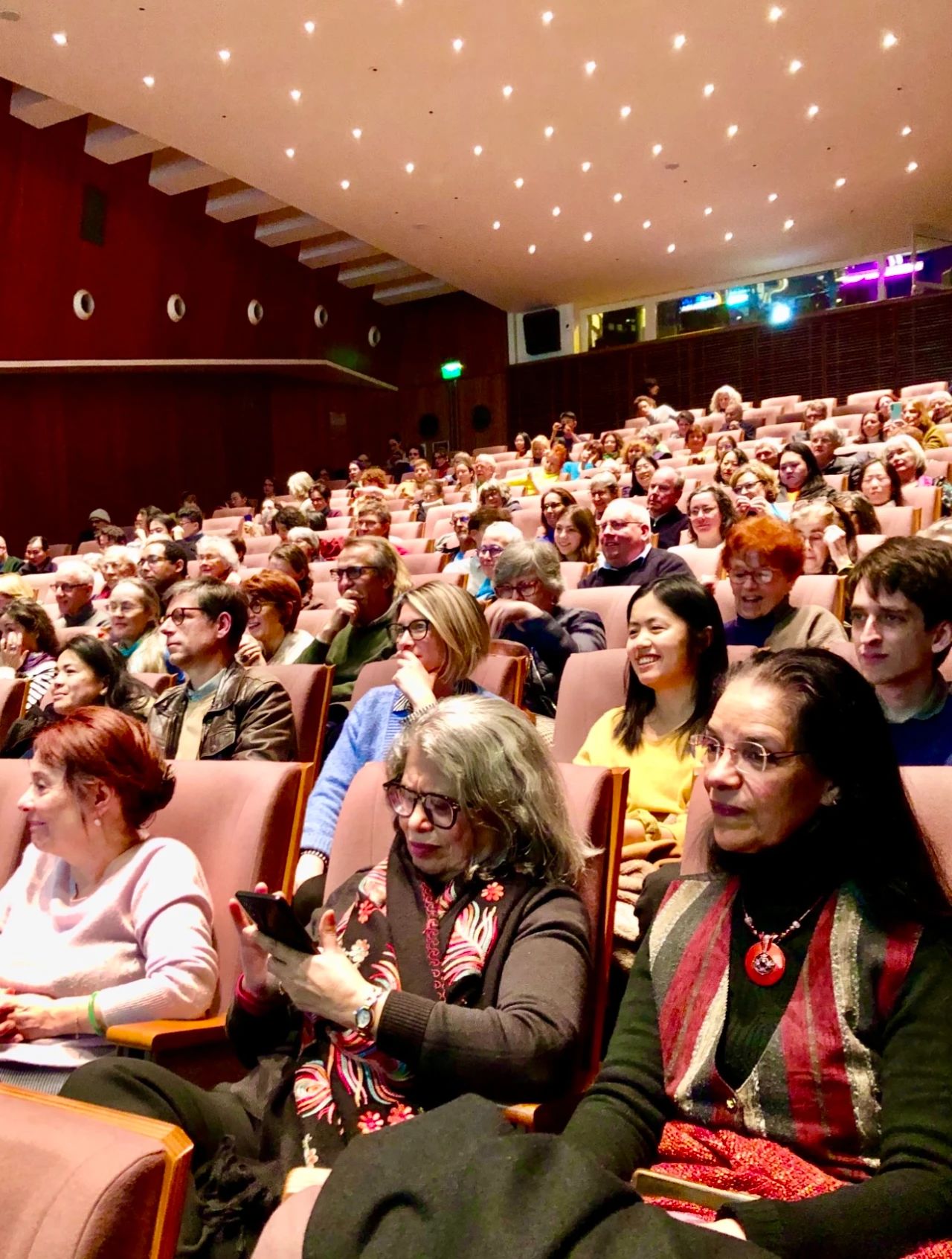
In his lecture Carpe Diem: Vivre les quatre saisons avec les poètes Tang — La vision des anciens poètes chinois face au cycle annuel et à la nature, prof. Dong selected and translated more than 30 Tang poems into French. Each poem illustrates scenes and life across the four seasons, offering insight into the world of ancient Chinese poetry and its connection to nature and the annual cycle. Prof. Dong adhered to the 'accuracy first' principle in both translation and poetry, rendering the poems with precision and refinement in French. He translated representative works from Tang poets such as Du Shenyan, Meng Haoran, Bai Juyi, Du Fu, Li Ang, Liu Gongquan, Wang Jian, Zhang Ji, Du Mu, Liu Yuxi, Wang Wei, Yuan Zhen, Liu Zongyuan, Zhang Ji, Li Bai, Gao Shi, and Han Yu. He also included works from Song poets like Wang Anshi, Su Shi, Qin Guan, Ye Shaoweng, Fan Chengda, Yang Wanli, and Li Qingzhao. Through this, prof. Dong highlighted the legacy of pastoral poetry from the Wei and Jin dynasties, especially the works of Tao Yuanming, which were inherited by Tang and Song poets. The professor also examined how ancient Chinese poets found inspiration in the changing seasons and immersed themselves in nature and the universe.
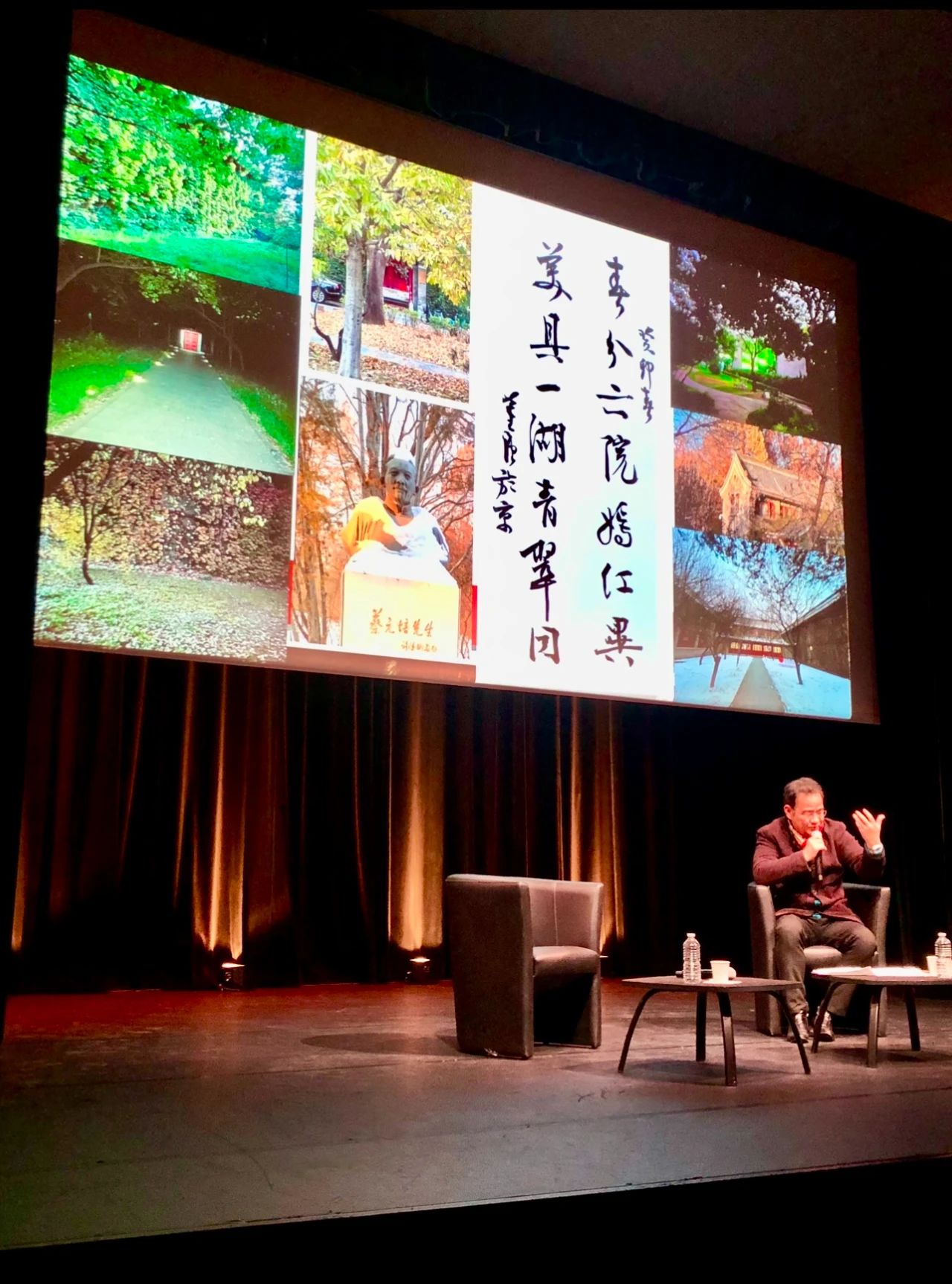
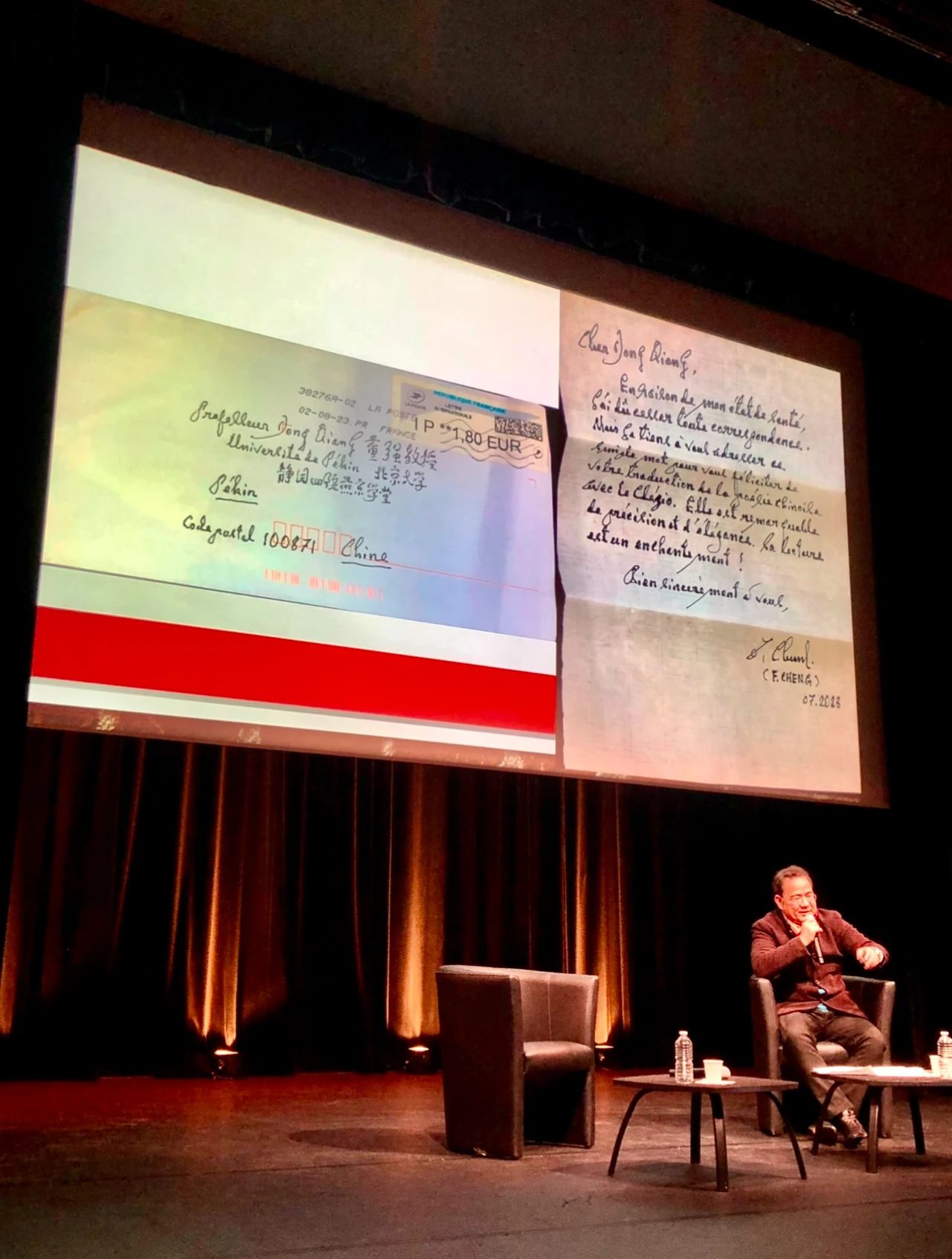
Prof. Dong referenced literary figures and theories familiar to Western audiences, such as Heidegger’s phenomenology, French existentialism (the concept of ‘being’), the French classic La Princesse de Clèves, and Roland Barthes’ modern criticism, using them as examples or counterexamples to explain Chinese poetry in an accessible way. For instance, while interpreting Ye Shaoweng’s Visiting the Garden in Vain, Dong noted a shared longing for spring similar to Pablo Neruda’s line, 'You can cut all the flowers, but you cannot keep spring from coming.' He also appreciated the desolate and solitary atmosphere in Liu Zongyuan’s Fishing in Snow. However, Dong pointed out that Chinese readers also enjoy moments of joy and togetherness, as seen in Bai Juyi’s An Invitation — 'At dusk it threatens snow; Won’t you come for a cup?' (Xu Yuanchong’s version), which mirrors the French tradition of enjoying Beaujolais Nouveau with family and friends.

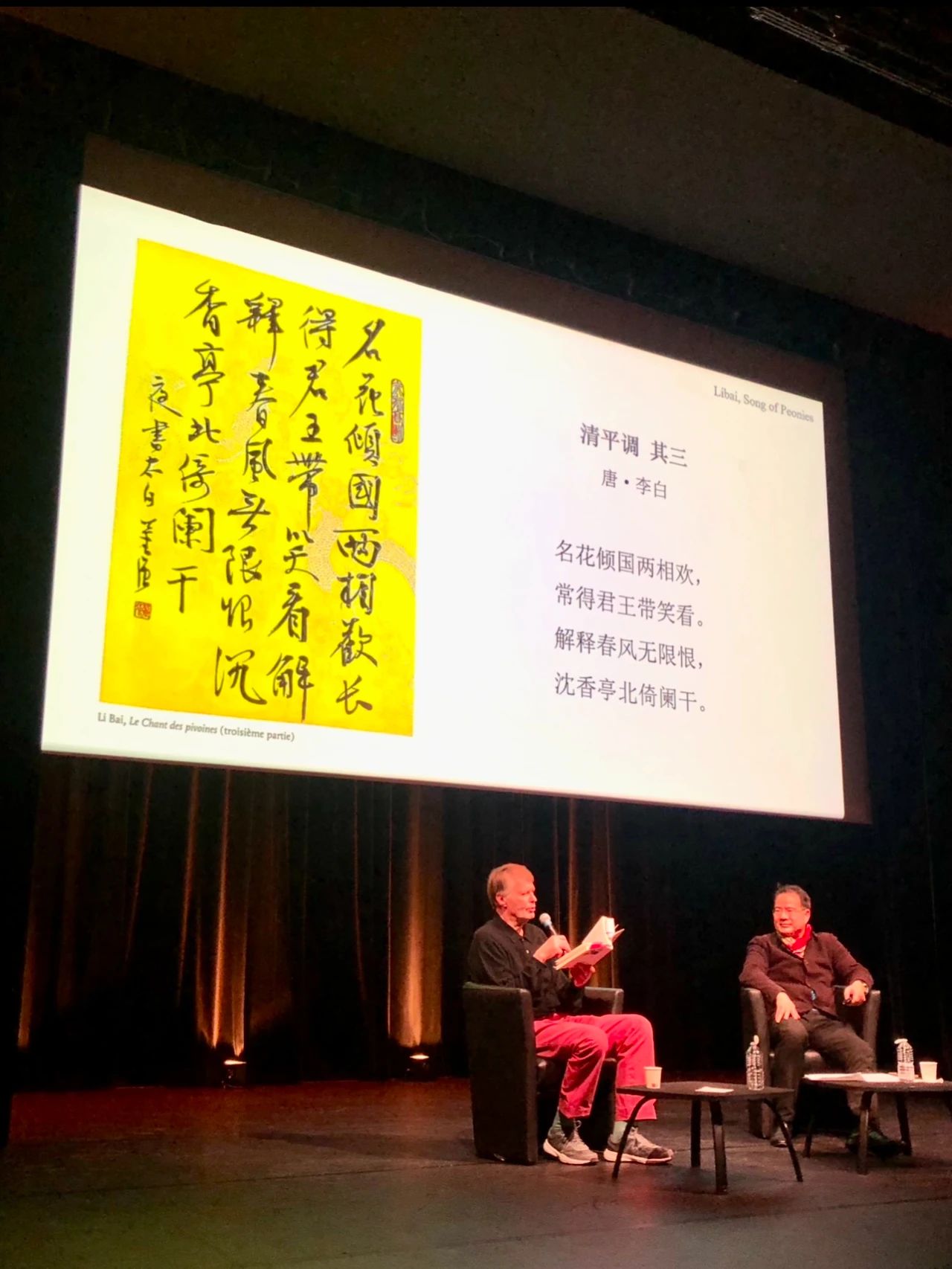
Prof. Dong pointed out that some view modern China and ancient China as 'two different worlds,' marked by vast differences. However, he emphasized that modern China is a complex entity with many diversities. Tang poets, for example, freely expressed their emotions about the passage of time and the changes brought by history. As Meng Haoran wrote in his poem On the Mount Xian with Friends, 'People may die and things fade into the dust; Time elapses from the present to the past. Only rivers and mountains endure, over which the present generation can still gaze.' Dong explained that as more ancient Chinese poems become known to modern audiences, classical Chinese poetry provides valuable insights into understanding modern China.
Prof. Dong shared with the audience his own poems and calligraphy created at Peking University and Yenching Academy, along with photos of himself and Le Clézio taken during their visit to Du Fu's Thatched Cottage and other literary events. He also presented a letter from François Cheng, the 94-year-old Chinese-French sinologist and expert on ancient Chinese poetry, who highly praised the work of Dong and Le Clézio.
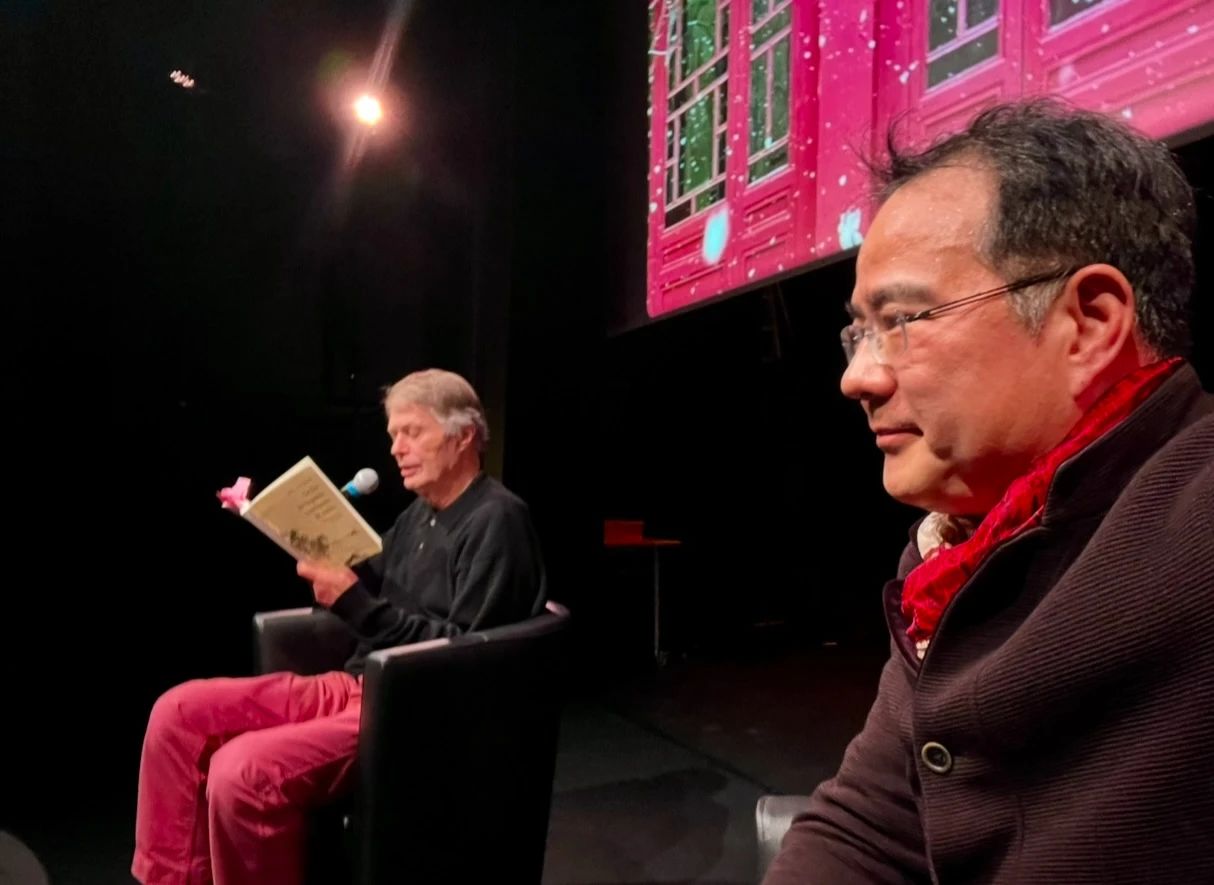
At the close of his talk, Prof. Dong quoted Han Yu’s lines, 'But white snow dislikes the late coming vernal breeze; It plays the parting flowers flying through the trees' (Xu Yuanchong’s version), to convey his best wishes for the coming new year to the audience.
After his speech, Prof. Dong invited Le Clézio to join the conversation. The Nobel Prize laureate recalled their first meeting in the late 20th century when Dong was studying in Paris. Since then, Le Clézio has delved deeply into classic Chinese literature. Both passionate about Chinese culture, they decided to co-author a book of Tang poetry. According to Le Clézio, ancient Chinese poems transcend specific dynastic periods or time frames; they remain ever-relevant to the present. When asked about the greatest legacy of China, Le Clézio named Chinese literature, which he believes holds universal significance. He compared Chinese poems to European lyric poetry, citing French poet Henri Michaux’s phrase “elle ne montre rien” to illustrate that Chinese poems do not seek to convey a singular, fixed meaning. Instead, they invite readers to interpret them in their own way. Furthermore, the absence of tense changes in the Chinese language imbues Chinese poetry with a sense of infinity, particularly when describing the changing seasons and the passage of time.

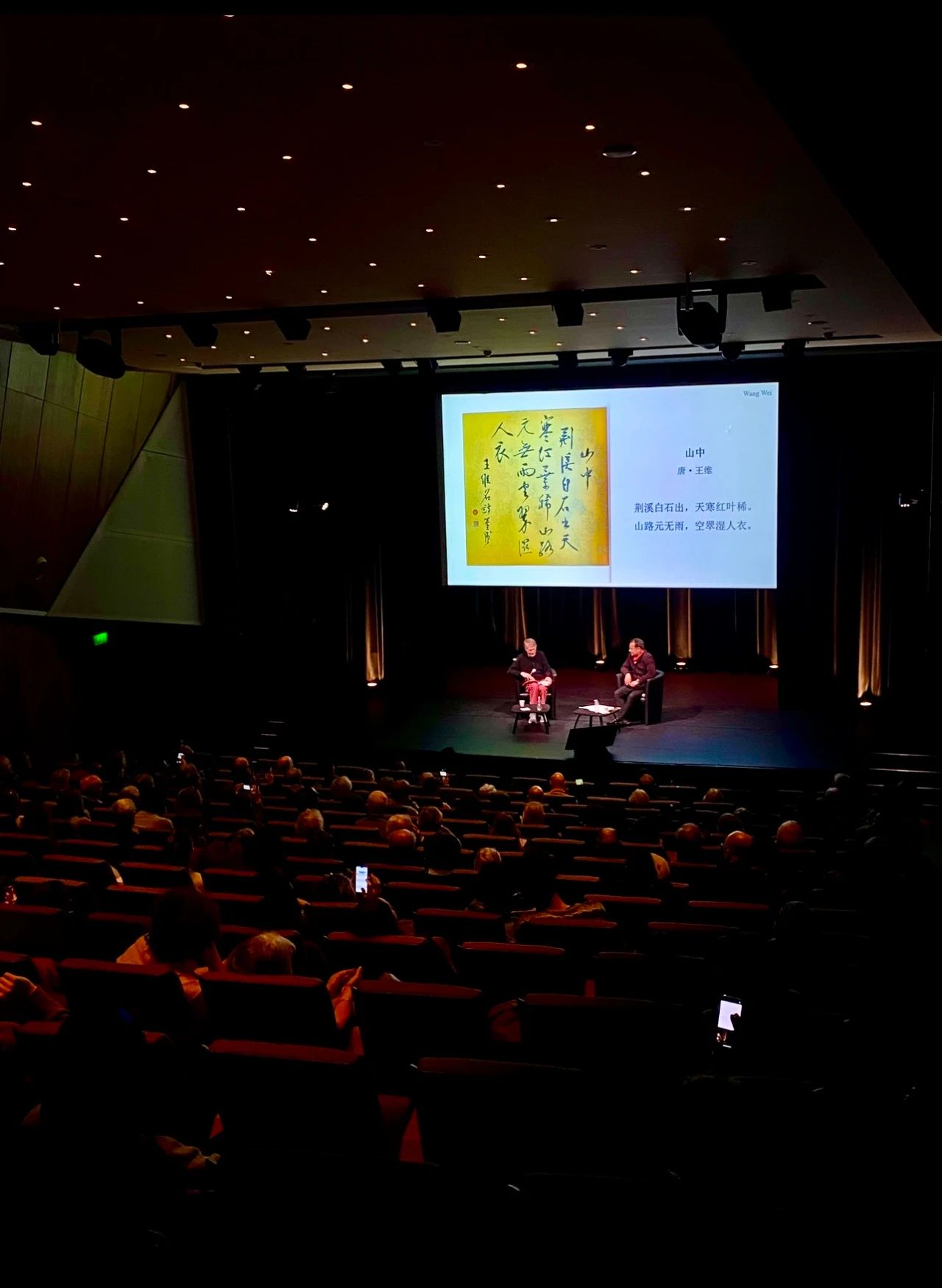
Le Clézio read a couple of poems from Le flot de la poésie continuera de couler. As a devoted fan of Li Bai, Le Clézio described him as a poet of summer, youth, and passion. He recalled his first reading of Li Bai’s Sitting Alone in Face of Peak Jingting years ago, when he was so struck by the poem’s poetic vision that he immediately traveled to the Var Valley near Nice, hoping to connect with Li Bai's spirit.
At the end of the Q&A session, Dong Qiang read Sitting Alone in Face of Peak Jingting aloud in Chinese. He explained that a Chinese poem is open to the audience's interpretations from the moment it is written, as there is no specific 'person' in the poem, thus inviting dialogue. Prof. Dong viewed the lecture and talk as more than just an exploration of Chinese culture; he saw it as a valuable opportunity to share the joy and experience of literature and reading with everyone present. He expressed feeling honored to share the moment with the audience.
The event was hosted by Vincent Billerey, general manager of Musée Guimet, and attended by representatives from France's cultural, academic, industrial, and commercial circles, as well as overseas Chinese and Chinese students in France. After the event, the audience lined up to receive autographs from Le Clézio and Dong Qiang.